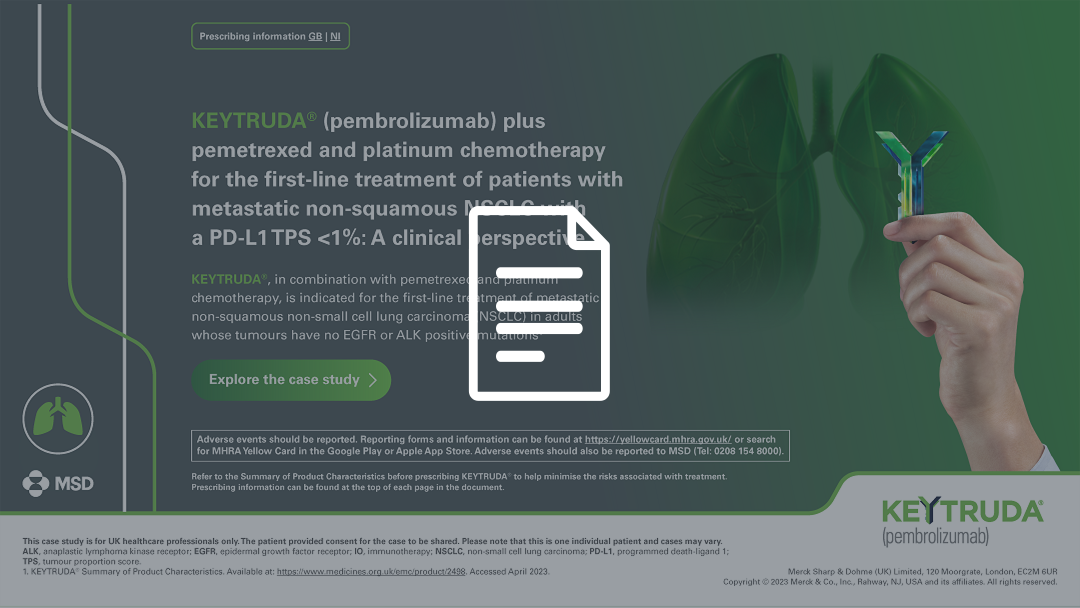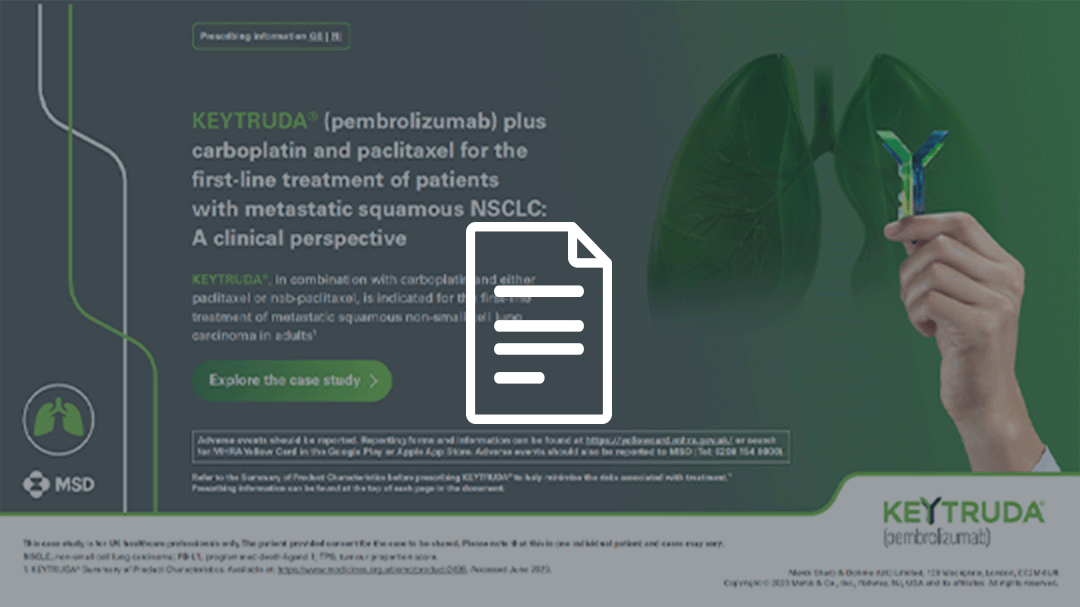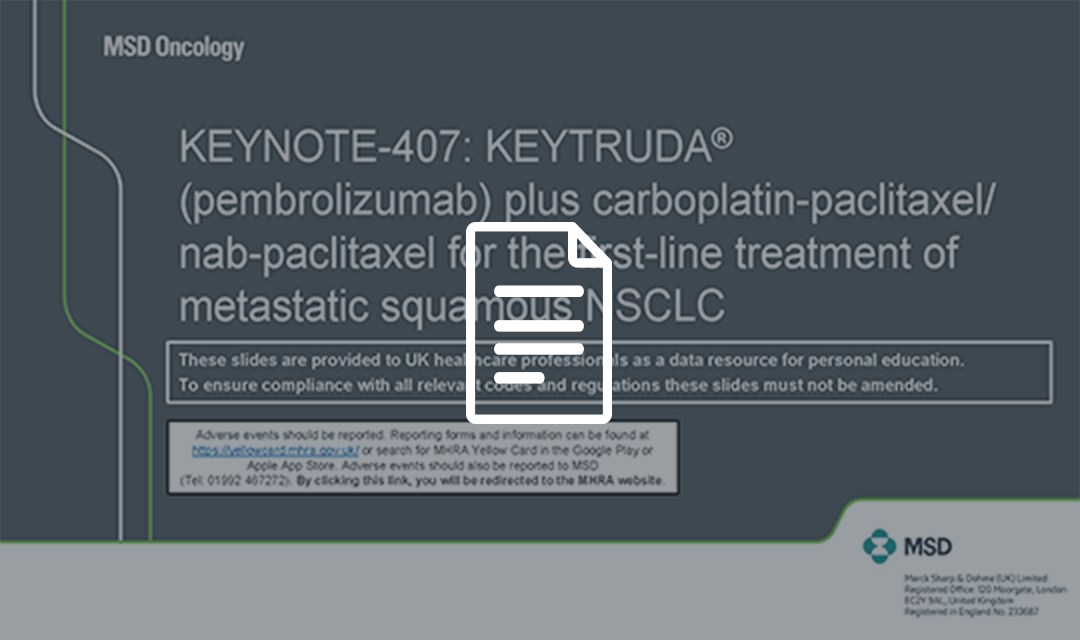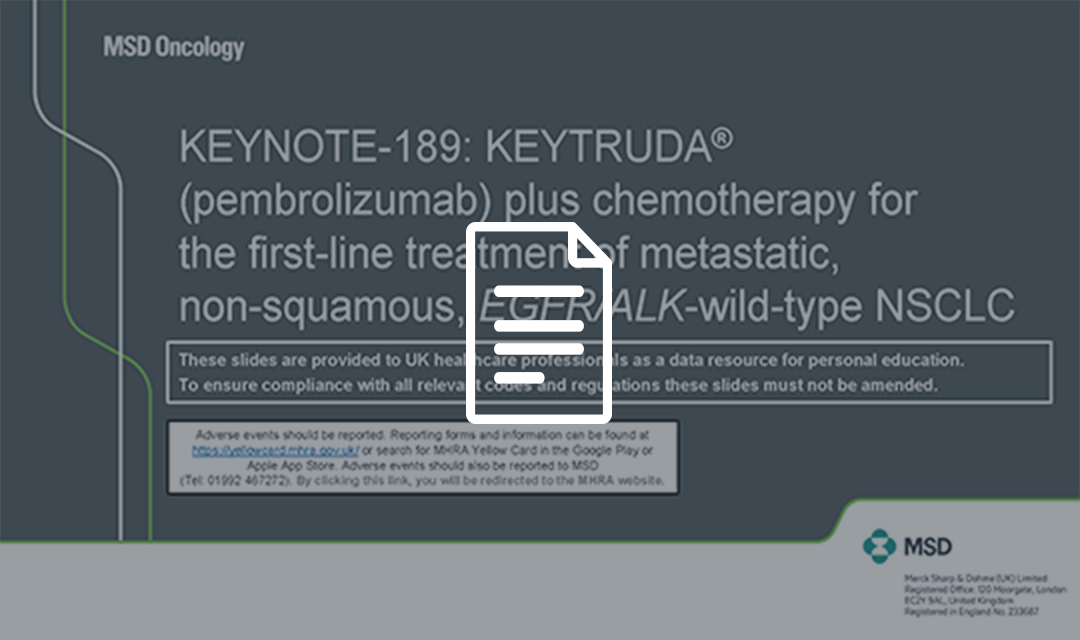Discover what 5-year follow up data might mean for your eligible Squamous and non-Squamous mNSCLC patients?
Prescribing Information (Great Britain) & Prescribing Information (Northern Ireland) [External links]
Licensed indications in mNSCLC
KEYTRUDA as monotherapy is indicated for the first-line treatment of metastatic non-small cell lung carcinoma (NSCLC) in adults whose tumours express PD-L1 with a ≥50% tumour proportion score (TPS) with no EGFR or ALK positive tumour mutations.1
KEYTRUDA as monotherapy is indicated for the treatment of locally advanced or metastatic NSCLC in adults whose tumours express PD-L1 with a ≥1% TPS and who have received at least one prior chemotherapy regimen. Patients with EGFR or ALK positive tumour mutations should also have received targeted therapy before receiving KEYTRUDA.1
KEYTRUDA, in combination with pemetrexed and platinum chemotherapy, is indicated for the first‑line treatment of metastatic non-squamous NSCLC in adults whose tumours have no EGFR or ALK positive mutations.1
KEYTRUDA, in combination with carboplatin and either paclitaxel or nab-paclitaxel, is indicated for the first-line treatment of metastatic squamous NSCLC in adults.1
The recommended dose of KEYTRUDA as monotherapy or as part of combination therapy is either 200 mg every 3 weeks or 400 mg every 6 weeks administered as an intravenous infusion over 30 minutes. KEYTRUDA should be administered first when given in combination with intravenous chemotherapy.1
In 2018, the first interim results of the KN-189 study were presented at the American association for cancer research (AACR).2 The most recent 5-year follow up analysis was presented at ESMO in September 2022.3
We invited Dr Carles Escriu, a Consultant Medical Oncologist at The Clatterbridge Cancer Centre, to present the data and an associated case study of a patient with metastatic non-squamous NSCLC. In the video below, both the original analysis and 5 year exploratory data are shown. It is important to note that the statistical significance was not tested in the 5 year follow up. Please view both the video and case study below.
In 2018, the first interim results of the KN-407 study were presented at the American Society of Clinical Oncology (ASCO).4 The most recent 5-year follow up analysis was presented at the European Society for Medical Oncology (ESMO) in September 2022.5
We invited Dr Carles Escriu, a Consultant Medical Oncologist at The Clatterbridge Cancer Centre, to present the data and an associated case study of a patient with metastatic squamous NSCLC. In the video below, both the original analysis and 5 year exploratory data are shown. It is important to note that the statistical significance was not tested in the 5 year follow up. Please view both the video and case study below.
Prescribing Information (Great Britain) & Prescribing Information (Northern Ireland) [External links]
More information about KEYTRUDA in metastatic NSCLC:
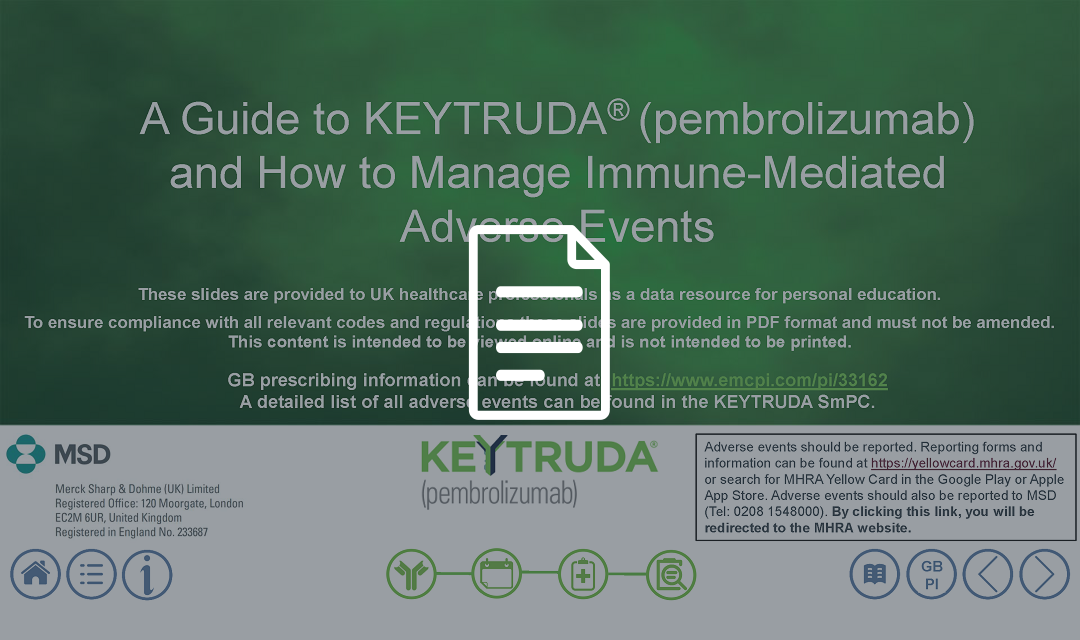
A guide to KEYTRUDA® (pembrolizumab) and how to manage immune-mediated adverse events
Prescribing Information (Great Britain) &
Prescribing Information (Northern Ireland)
[External links]
Register with MSD Connect
✔ Sign up for events
✔ Access learning modules
✔ Receive cancer resources
✔ Access additional content
References
- KEYTRUDA Summary of Product Characteristics.
- Gandhi L, et al. Presented at AACR 2018. April 14-18 2018, Chicago, IL.
- Garassino MC, et al. Presented at ESMO 202. 9-13 September 2022, Paris, France.
- Paz-Ares LG, et al. Presented at ASCO 2018. 1-5 June 2018, Chicago, IL.
- Novello S, et al. Presented at ESMO 2022. 9-13 September 2022, Paris, France.
Supporting documentation
Prescribing Information (Great Britain) & Prescribing Information (Northern Ireland)
By clicking the links above you will leave the MSD Connect website and be taken to the emc PI portal website
